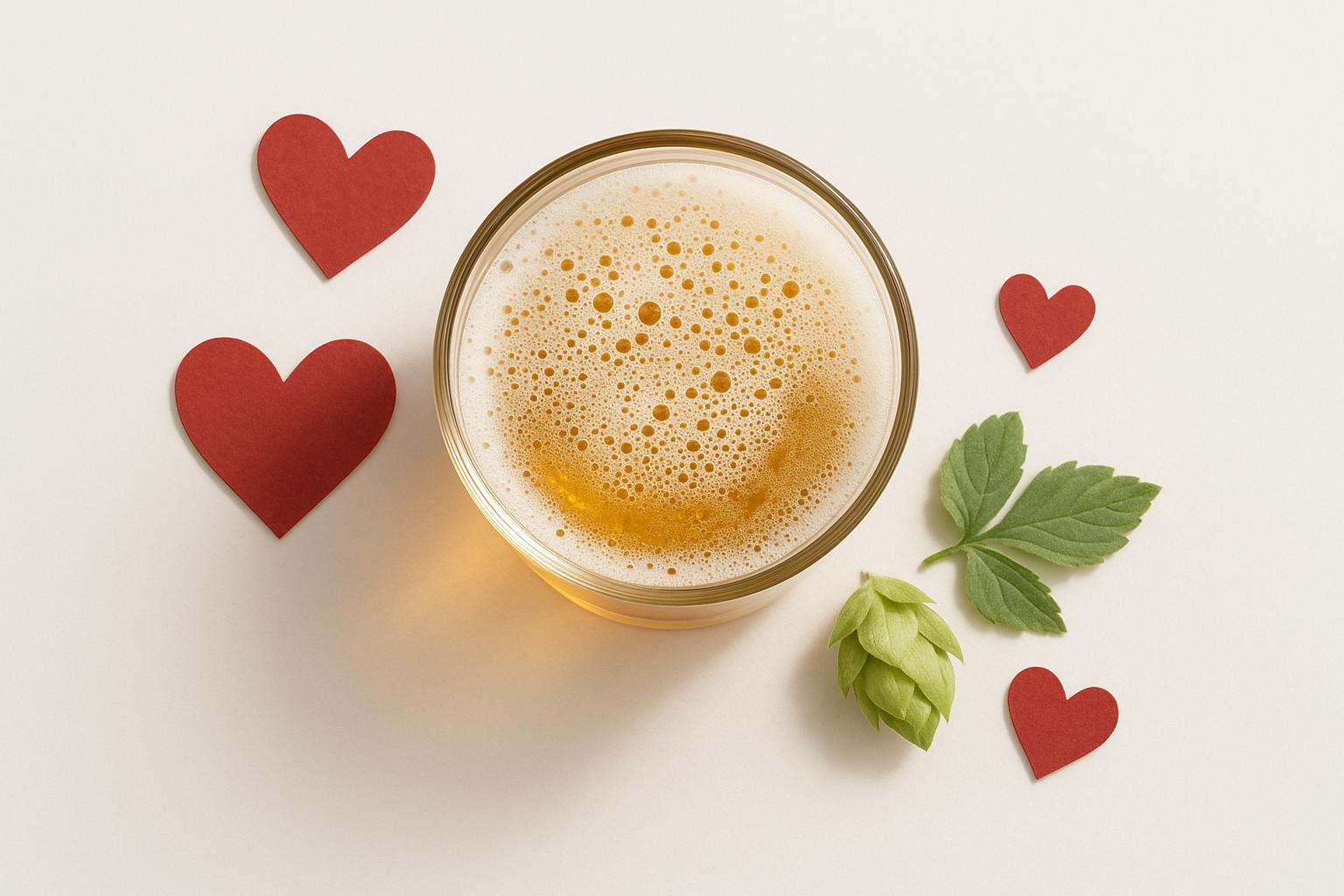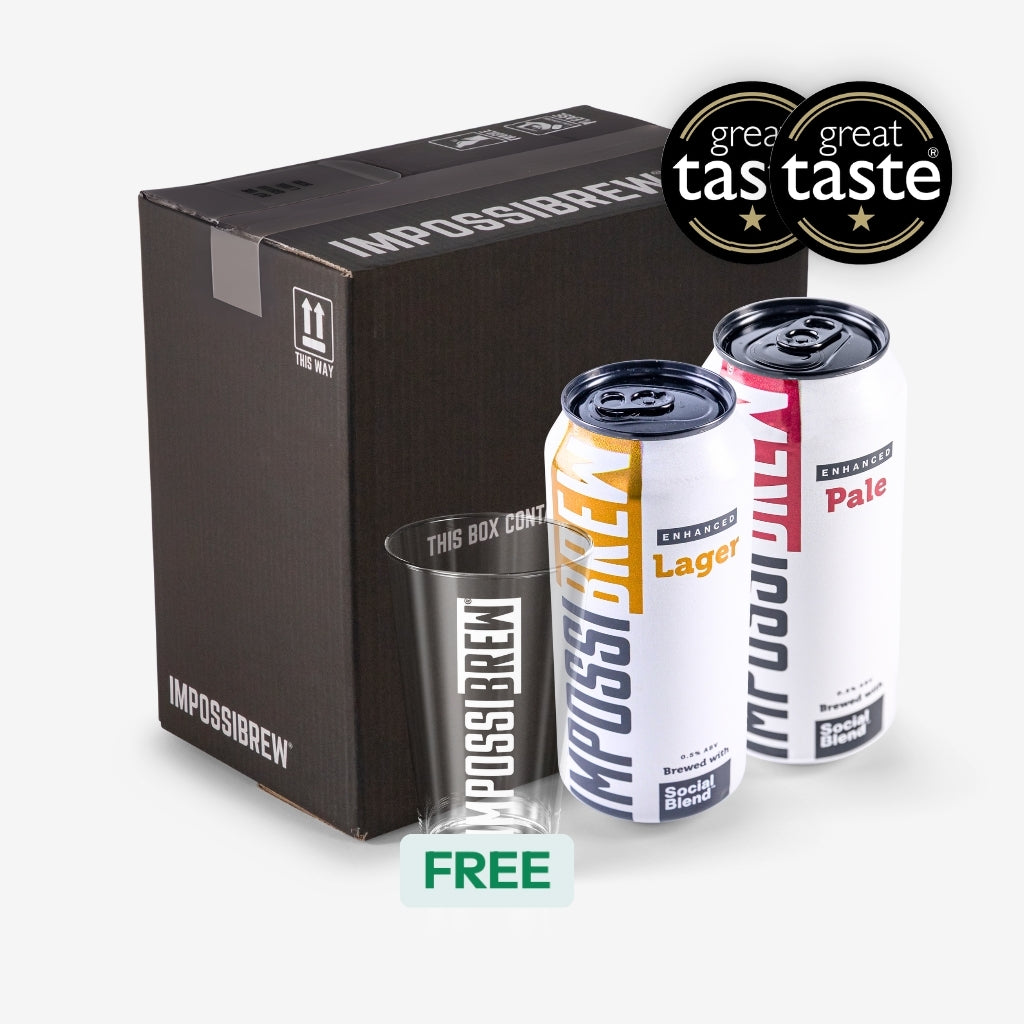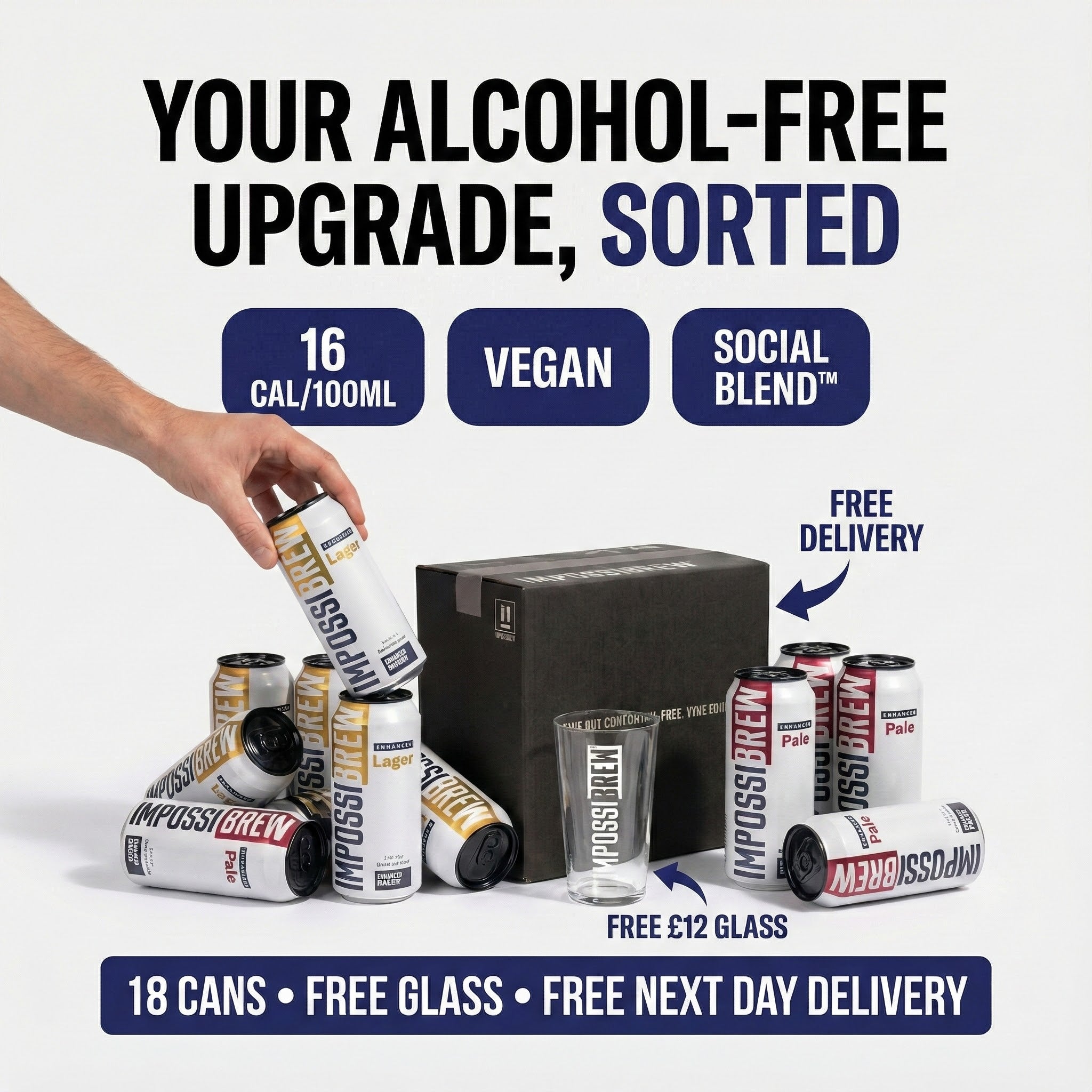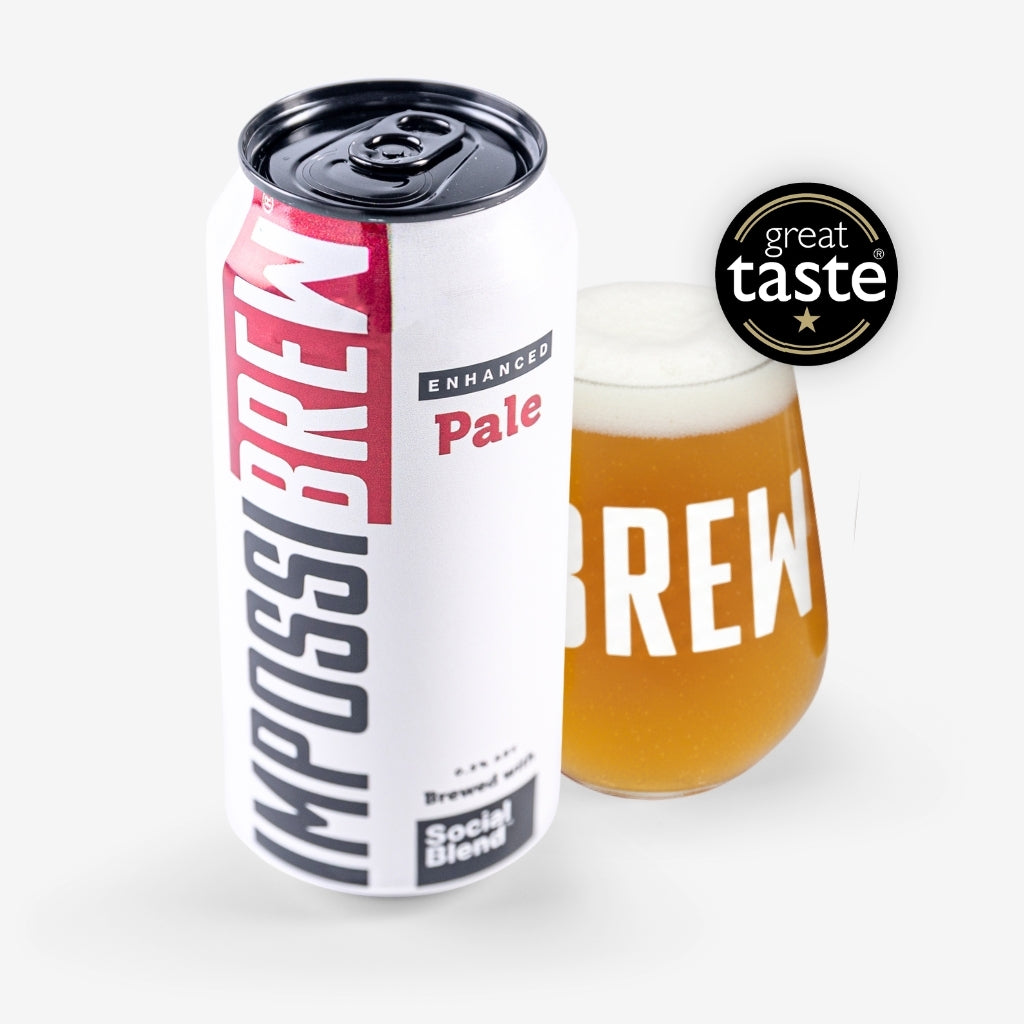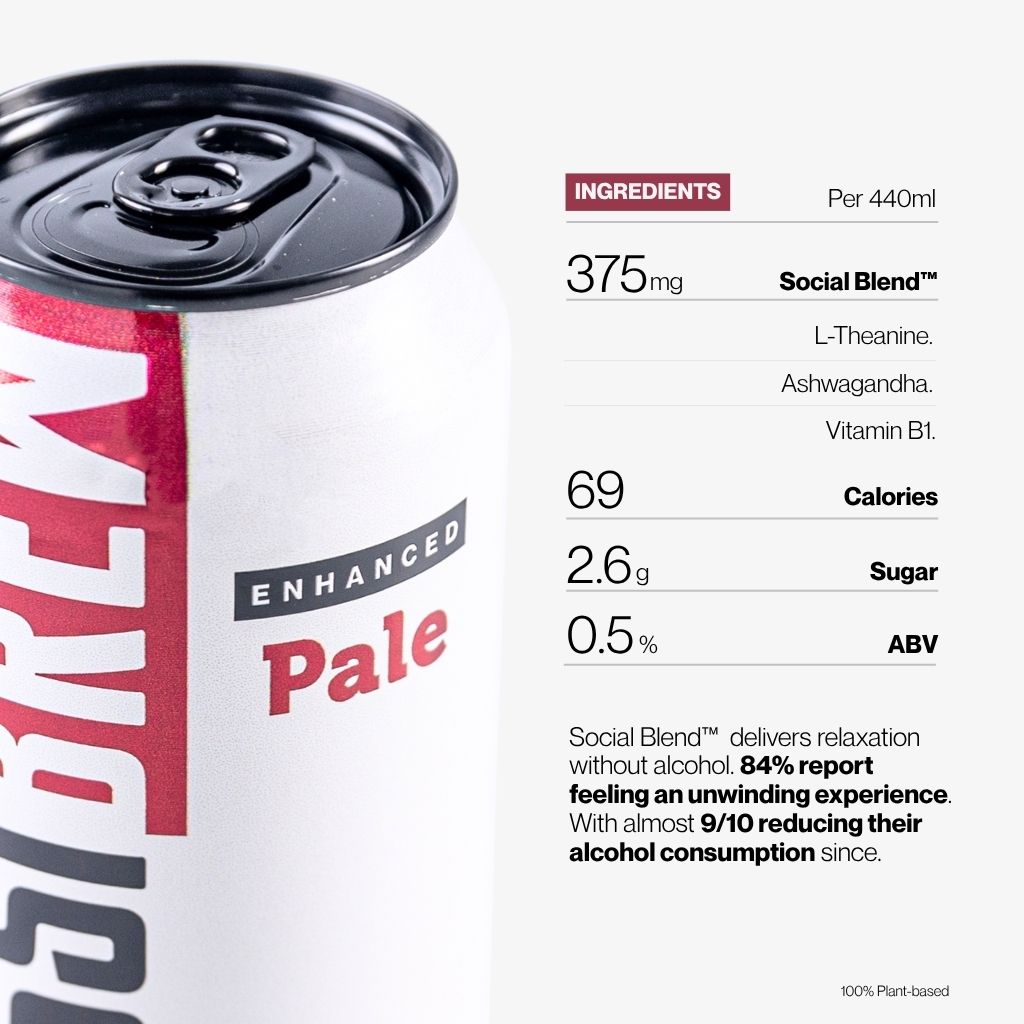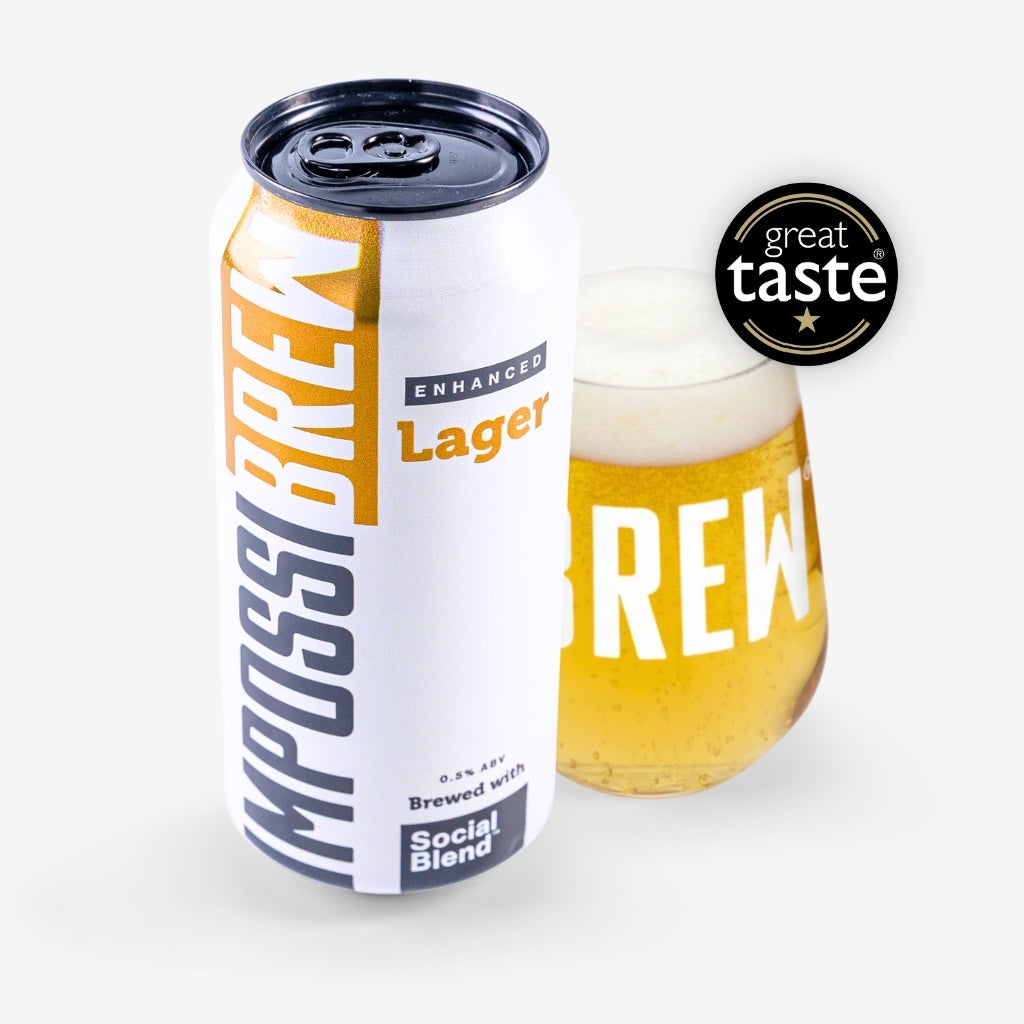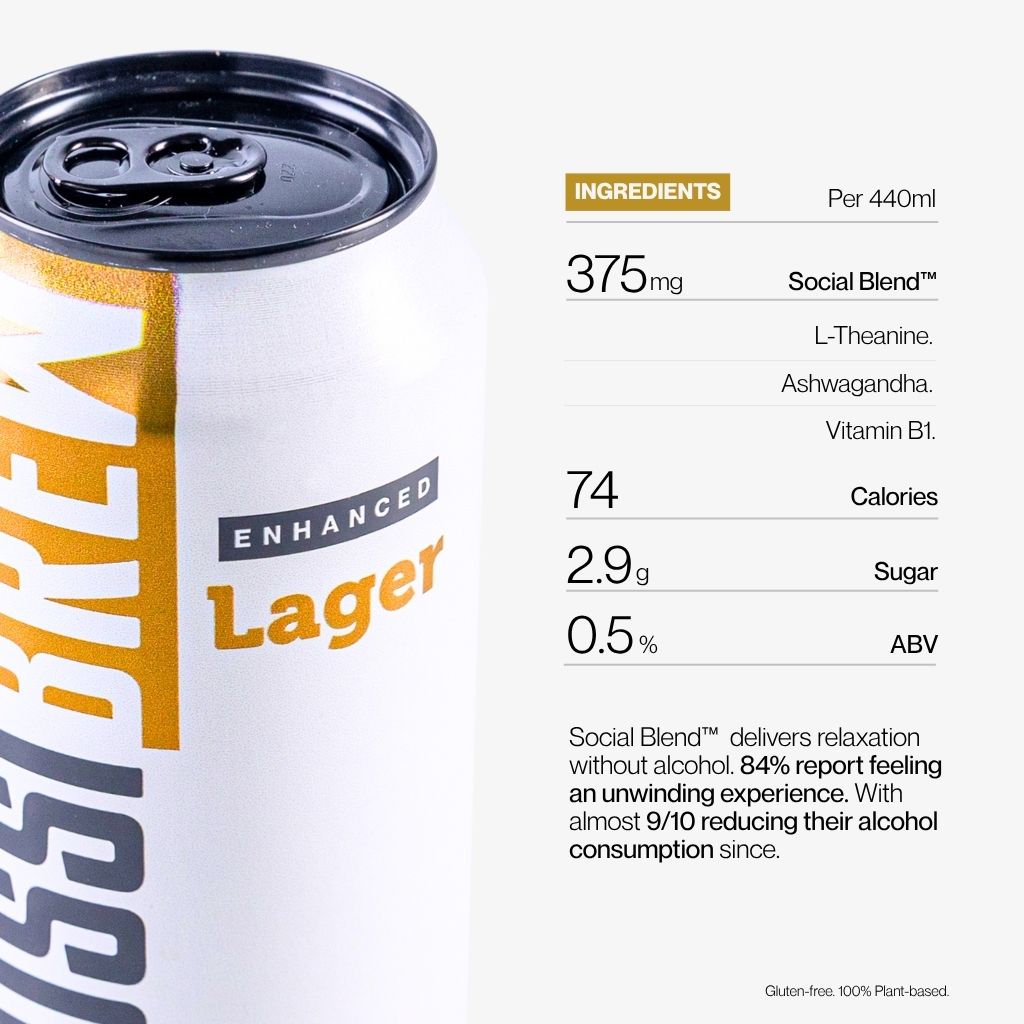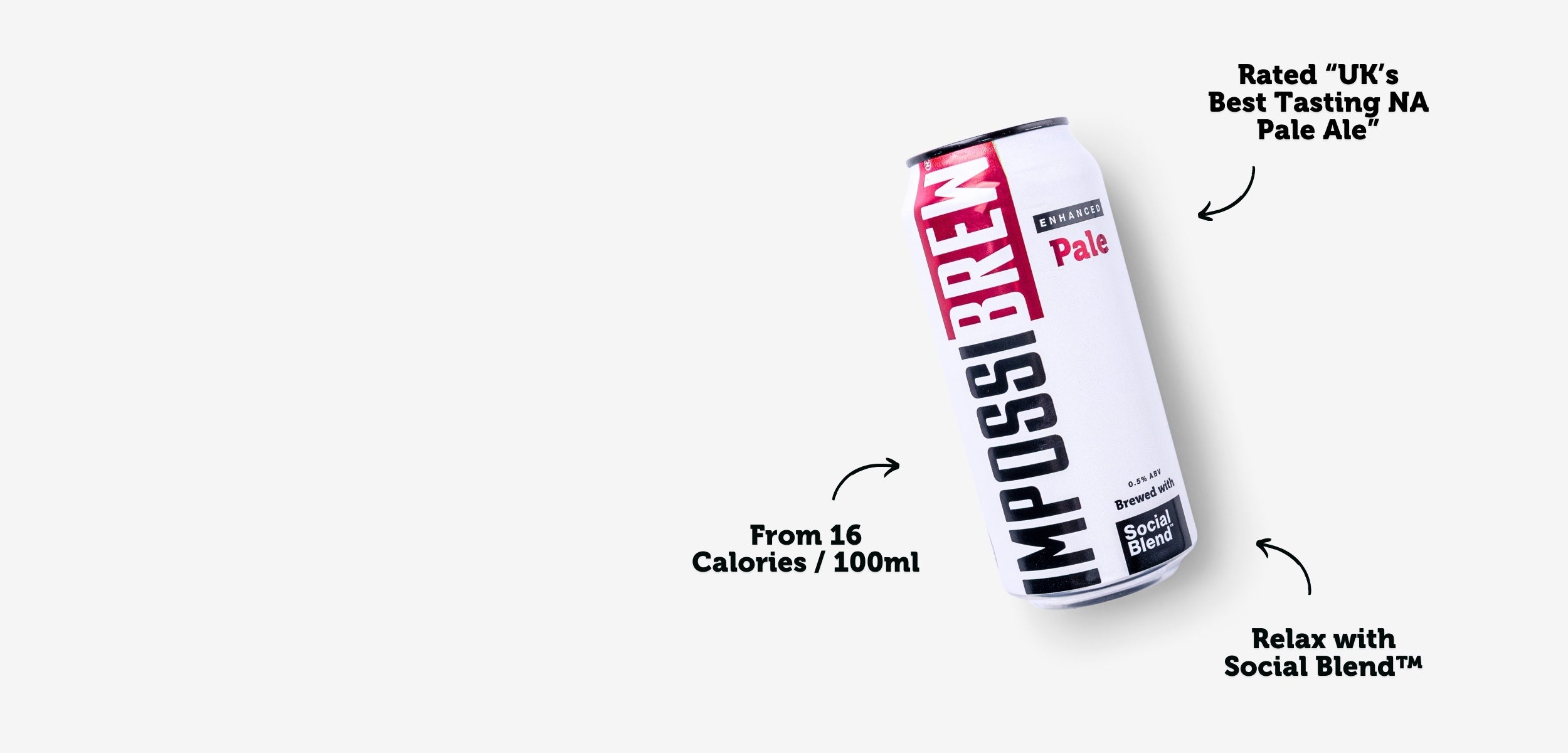Adaptogens are plant-based compounds that help the body manage stress and maintain balance. Recent studies highlight their potential to reduce brain inflammation, improve cognitive function, and support mental health. Here's what you need to know:
- Key Adaptogens Studied: Schisandra chinensis, Eleutherococcus senticosus, Rhodiola rosea, and Withania somnifera (ashwagandha).
- Brain Inflammation: Chronic neuroinflammation is linked to memory issues, mood disorders, and diseases like Alzheimer’s. Adaptogens may reduce inflammatory markers like TNF-α, IL-1β, and IL-6.
- Cognitive Benefits: Research shows improvements in memory, anxiety reduction, and motor skills in animal models.
- Functional Beverages: Products like IMPOSSIBREW® incorporate adaptogens to promote relaxation and mental clarity, offering alternatives to alcohol.
This research supports the growing interest in adaptogens for stress relief and brain health, particularly as part of everyday products like drinks. Future studies will focus on long-term effects and optimal dosages.
Team Trial Design and Methods
Trial Objectives
The study set out to determine whether adaptogens could interrupt neuroinflammation from its onset to its progression, potentially halting a chain reaction of damage. Researchers also explored whether adaptogens could shield neurons, offering benefits against age-related brain decline, neurodegenerative conditions like dementia, and psychiatric issues such as depression and anxiety. Another primary goal was to investigate whether adaptogens could reduce pro-inflammatory leukotriene gene expression in brain cells while improving behavioural outcomes like memory, anxiety levels, and motor skills [2]. These goals were pursued through a detailed dual-method approach, as outlined below.
Research Methods
To achieve these objectives, the research combined molecular-level experiments with behavioural studies. The approach included both in vitro assays and live animal models to assess the molecular and behavioural impacts of adaptogens. In vitro experiments focused on isolated cell lines, particularly N9 microglia cells, to uncover the molecular mechanisms involved. These experiments revealed reduced levels of TNF-α, IL-1β, and IL-6, alongside inhibited NF-κB signalling, decreased MAPK activity, and lower TLR4 expression [2].
For in vivo studies, rodents with induced central nervous system disorders were observed. Under stress conditions, researchers measured corticosterone levels and assessed adaptive responses by tracking serum Hsp72 levels and ATP normalisation in subjects treated with adaptogens compared to control groups [2][3]. Behavioural tests complemented these molecular analyses, providing insights into improvements in memory, anxiety, and motor function. This allowed researchers to link reduced inflammatory markers with better functional outcomes.
Participant and Sample Details
The trials centred on four specific adaptogens: Schisandra chinensis, Eleutherococcus senticosus, Rhodiola rosea, and Withania somnifera [2][5]. These adaptogens were chosen based on evidence of their anti-inflammatory and psychotropic properties. Findings showed that extracts from Eleutherococcus senticosus, Rhodiola rosea, and Withania somnifera could lower the expression of genes responsible for pro-inflammatory leukotriene biosynthesis in isolated brain cells.
Adaptogens were administered using a stress mimetic approach, where these compounds acted as mild stressors to trigger adaptive responses. This method demonstrated that adaptogens reduced corticosterone levels during induced stress compared to control groups. Comparative analyses between groups highlighted molecular changes, such as increased serum Hsp72 levels and ATP normalisation, providing multiple layers of evidence for their effectiveness. The trials confirmed that adaptogens function as stress mimetics, activating defence mechanisms through Hsp70 expression and the HPA axis [3].
Nutritional Impact on Neuroinflammation
Key Findings: Adaptogens' Impact on Brain Inflammation
Research trials have shown that adaptogens can play a role in reducing brain inflammation while also boosting cognitive function. These findings point to the potential of certain plant-based compounds to protect the brain from the harmful effects of chronic inflammation.
Reduced Inflammatory Markers
The trials revealed a significant reduction in key inflammatory proteins within the brain. For instance, Schisandrin B, a compound derived from Schisandra chinensis, demonstrated notable anti-inflammatory effects when administered at 20 mg/kg daily over seven days. The results showed a decrease in caspase‑1, IL‑1β, and IL‑18 levels, alongside a reduction in pyroptosis - a type of inflammatory cell death that can damage brain tissue [2].
In another trial, Schisandrin at a lower dose of 2 mg/kg daily for two weeks significantly reduced levels of TNF‑α, IL‑1β, and IL‑6, while also inhibiting NF‑κB activation, a key inflammatory signalling pathway [2]. Additionally, Gomisin A, another active compound from Schisandra, was shown to lower TNF‑α, IL‑1β, and IL‑6 levels in microglial cells by inhibiting both NF‑κB and MAPK pathways [2].
Beyond Schisandra, other adaptogens like Eleutherococcus senticosus, Rhodiola rosea, and Withania somnifera also demonstrated anti-inflammatory properties. These findings suggest that these adaptogens may influence inflammatory signalling and provide broader neuroprotective benefits.
These molecular changes appear to be closely linked to the observed improvements in cognitive and behavioural functions.
Cognitive and Behavioural Improvements
The reduction in brain inflammation translated into measurable improvements in cognitive performance. For example, in transgenic mice with Alzheimer’s-like conditions, treatment with Schisandrin at 2 mg/kg daily for two weeks not only reduced inflammatory proteins but also improved performance in the Morris water maze test [2].
Subjects also exhibited better memory, reduced anxiety, and enhanced motor skills. Memory deficits were mitigated, with improved learning and retention abilities. Anxiety-like behaviours were lessened, and motor coordination was improved, particularly in cases of central nervous system disorders, where reduced neuroinflammation played a key role [2].
Stress resilience was another area of improvement. Subjects treated with adaptogens showed increased levels of serum Hsp72, a stress-response protein that aids in cellular repair. This was associated with better stress tolerance and more stable cognitive performance under challenging conditions [3].
Comparing Different Adaptogens
The table below summarises the key findings for four adaptogens studied:
| Adaptogen | Primary Anti-Inflammatory Effects | Cognitive Benefits | Safety Profile | Key Mechanisms |
|---|---|---|---|---|
| Schisandra chinensis | Reduces IL‑1β, TNF‑α, IL‑6, caspase‑1; inhibits NF‑κB | Improves memory and learning capacity | Generally well-tolerated | Blocks inflammatory pathways, reduces pyroptosis |
| Rhodiola rosea | Modulates stress response, reduces systemic inflammation | Enhances memory retention, reduces anxiety | Few adverse effects reported | HPA axis modulation, upregulates stress proteins |
| Withania somnifera | Reduces inflammatory gene expression, neuroprotective | Improves cognitive function, reduces stress | Considered safe for most users | Regulates stress hormones, supports cellular health |
| Eleutherococcus senticosus | Reduces leukotriene synthesis, enhances stress resistance | Improves mental performance under stress | Safe with historical use data | Supports adaptive stress response, immune modulation |
Among these, Schisandra chinensis exhibited the strongest anti-inflammatory effects, while Rhodiola rosea excelled in reducing anxiety. Withania somnifera offered a balanced range of benefits, and Eleutherococcus senticosus showed promise in enhancing mental performance under stress. These differences highlight the potential for tailored combinations of adaptogens to maximise therapeutic effects, particularly in applications like functional beverages aimed at cognitive health.
These findings underscore the potential of adaptogens to contribute to cognitive wellness, particularly through their inclusion in innovative functional beverage formulations.
sbb-itb-a752bf8
How Adaptogens Work
Adaptogens play a key role in reducing neuroinflammation, which is essential for maintaining brain health. They achieve this through a variety of interconnected mechanisms, which we’ll explore below.
Blocking Inflammatory Pathways
One way adaptogens help is by interfering with inflammatory signals in the body. For instance, compounds like Gomisin A and Schisandrin B are known to block NF-κB and MAPK signalling pathways. They also reduce TLR4 expression and suppress inflammasome activity. These actions collectively lower the levels of pro-inflammatory cytokines and prevent pyroptosis - a process linked to inflammation-related cell death [2]. By targeting both the start and spread of chronic neuroinflammation, adaptogens provide a robust defence against inflammation.
Managing Stress Through the HPA Axis
The hypothalamic-pituitary-adrenal (HPA) axis is your body’s main stress-response system, and adaptogens help regulate it. Acting as mild stress mimics, they train the HPA axis to handle stress more effectively. Research shows that individuals treated with adaptogens produce less corticosterone - a stress hormone - when under pressure, pointing to a more balanced stress response [2]. This regulation is partly due to the upregulation of stress-responsive proteins, which may explain adaptogens’ anti-fatigue and mood-lifting effects observed in studies [3].
Enhancing Cellular Protection
Adaptogens also support the body’s natural repair systems. Animal studies reveal that they boost levels of Hsp72, a protein that aids in repairing damaged proteins and improving cellular energy [3]. This enhancement in cellular repair not only protects neurons but also aligns with the cognitive improvements noted in various trials. By fortifying these repair mechanisms, adaptogens may offer neuroprotective benefits, particularly in scenarios involving cognitive decline.
These combined effects highlight how adaptogens take a multi-faceted approach to brain health. Their ability to block inflammation, regulate stress, and protect cells makes them a promising addition to functional beverages and everyday wellness routines.
Applications in Functional Beverages
The rise of adaptogens in functional beverages is reshaping the way we approach wellness and social drinking. With more people looking for ways to relax without the downsides of alcohol, drinks enriched with adaptogens are stepping in as a promising alternative. These beverages offer a unique combination of cognitive and social benefits, making them a standout choice in the evolving market.
Functional Beverages for Cognitive and Social Wellness
Adaptogen-infused drinks are carving out a niche in the functional beverage space by addressing both mental performance and social well-being. Key adaptogens like Schisandra chinensis, Eleutherococcus senticosus, Rhodiola rosea, and Ashwagandha (Withania somnifera) are often featured in these formulations [2]. Together, they help reduce stress, sharpen focus, and lift mood - qualities that make them ideal for social situations.
What sets these beverages apart is their ability to replicate the social ease of alcohol while offering real health advantages. By influencing the HPA axis and reducing neuroinflammation, these drinks provide long-lasting cognitive support [3]. Studies show that adaptogens act as stress-response regulators, enhancing the body’s ability to handle stress and adapt to challenges [4].
IMPOSSIBREW®: A Case Study
IMPOSSIBREW® is a standout example of how adaptogens can be seamlessly incorporated into consumer products. Their signature Social Blend™ showcases how science-backed formulations can create non-alcoholic beers that mimic the sensory and social experience of traditional alcoholic beverages - without the negative effects.
The impact of IMPOSSIBREW® is clear: 88% of customers report drinking less alcohol after trying the product [1]. This highlights its effectiveness in meeting the growing demand for healthier social options. The Social Blend™ works by targeting specific neurological pathways to promote relaxation and mental calm. This aligns with research showing that adaptogens can activate Hsp70 expression, a key mechanism in the body’s stress-defence system [3].
IMPOSSIBREW® combines adaptogens with nootropics, offering both immediate relaxation and long-term cognitive benefits. Customer feedback underscores its success, with 95% of users recommending it to a friend and three out of four calling it the most effective product in its category [1]. This strong consumer response underscores the potential of adaptogen-enriched beverages to transform the market.
UK-Specific Considerations
The UK offers a unique landscape for adaptogen-rich beverages. IMPOSSIBREW® has tailored its products to meet local preferences, offering vegan, gluten-free, and low-calorie options that align with the priorities of health-conscious consumers. These features, combined with adherence to strict food safety and labelling standards, build trust and ensure compliance with UK regulations.
The growing trend of mindful drinking in the UK creates fertile ground for these beverages. As more people seek alcohol-free ways to enjoy social occasions, products blending traditional brewing methods with functional ingredients provide a familiar yet forward-thinking solution. To succeed, manufacturers must focus on sourcing high-quality adaptogen extracts and maintaining rigorous quality control. This ensures consistent benefits and meets the high expectations of UK consumers [5].
Conclusion: The Future of Adaptogens in Health and Beverages
Our studies have shown that adaptogens can play a meaningful role in reducing neuroinflammation and boosting cognitive function. These findings provide a clear direction for future product development and further research.
Key Findings Summary
The results from our trials highlight the consistent anti-inflammatory effects of the four adaptogens studied: Schisandra chinensis, Eleutherococcus senticosus, Rhodiola rosea, and Withania somnifera. These adaptogens showed they could reduce neuroinflammation during both its early and later stages [2].
Specifically, these compounds lowered inflammatory markers like TNF-α, IL-1β, and IL-6 by inhibiting the NF-κB and MAPK pathways [2]. This reduction in inflammation directly correlated with noticeable cognitive benefits. Test subjects experienced fewer memory issues, reduced anxiety, and improvements in motor function [2]. Additionally, these adaptogens helped mitigate stress by lowering corticosterone levels under challenging conditions compared to control groups [2].
Impact on Daily Wellness
These molecular findings translate into practical health benefits for day-to-day life. For UK consumers, adaptogen-enriched beverages offer an easy way to support wellness without relying on additional supplements.
By regulating the HPA axis, adaptogens promote resilience to stress across various body systems [3]. This means a single functional beverage can potentially enhance stress management, improve cognition, and support overall well-being - all in one go.
Products like IMPOSSIBREW® exemplify how these benefits can be seamlessly integrated into everyday life. Their Social Blend™ offers a steady, low-dose intake of adaptogens in a beverage designed for social settings. Feedback from customers indicates that many have reduced their alcohol consumption, reflecting a growing shift towards healthier lifestyle choices.
This trend aligns well with the needs of UK consumers seeking alternatives to traditional alcoholic drinks. Adaptogen-based beverages not only help with relaxation and social ease but also contribute to long-term cognitive health and overall wellness goals.
Future Research and Development
The next step is to deepen our understanding of adaptogens through targeted clinical trials. While the current findings are promising, large-scale studies on humans are essential to clarify how adaptogens interact with the body [5]. Much of the existing research is based on animal studies or isolated cell experiments.
Future research should aim to establish optimal dosages for beverages, assess the long-term safety of regular adaptogen consumption, and explore how these compounds interact with common medications. Comparative studies between different adaptogen blends will also help identify the most effective formulations for specific wellness outcomes.
As the science of formulation evolves, we can anticipate the creation of beverages tailored to address precise needs - whether for stress relief, cognitive support, or social well-being. Regulatory frameworks will play a critical role in this process, with clearer guidelines on health claims and standardised testing benefiting both manufacturers and consumers.
With neuroinflammation increasingly linked to age-related cognitive decline, adaptogens are especially relevant for an ageing population. Research suggests they could help prevent or alleviate symptoms of central nervous system disorders [2]. This opens the door for products designed for specific health concerns or demographic groups.
In the UK, future developments will likely focus on transparency, quality sourcing, and respect for local preferences around beverages and social habits. The success of products like IMPOSSIBREW® shows that consumers are eager for functional drinks that deliver real benefits without sacrificing taste or the social experience.
FAQs
How do adaptogens like Schisandra chinensis and Rhodiola rosea help reduce brain inflammation and support cognitive function?
Adaptogens like Schisandra chinensis and Rhodiola rosea are often associated with reducing brain inflammation by influencing the body's stress response and helping maintain a balanced immune system. These natural substances are thought to interact with pathways connected to inflammation, potentially lowering oxidative stress and supporting brain health.
Beyond this, both adaptogens are linked to improved cognitive abilities, such as sharper focus, better memory, and enhanced mental clarity. By aiding the body in managing stress and supporting a healthy inflammatory balance, they may play a role in boosting overall brain function and resilience.
Are there any long-term effects or safety concerns with regularly consuming adaptogen-enriched beverages?
Research on the long-term impact of consuming drinks enriched with adaptogens is still in its early days, with most existing studies focusing on short-term outcomes. That said, adaptogens such as ashwagandha, rhodiola, and ginseng are generally regarded as safe when consumed in moderation as part of a well-rounded diet. However, if you're considering making significant dietary changes - especially if you have pre-existing health conditions or take medication - it’s always wise to consult a healthcare professional first.
Brands like IMPOSSIBREW® take a thoughtful approach by using carefully selected, scientifically supported ingredients, ensuring both safety and quality. Their adaptogen-infused drinks are crafted to offer a calming and enjoyable alternative, free from the downsides often linked to alcohol. To stay on the safe side, always stick to the recommended serving instructions provided on the packaging.
How do adaptogens in functional beverages support stress relief compared to traditional methods?
Adaptogens, like those found in IMPOSSIBREW®, are natural compounds included in functional beverages to help the body handle stress more effectively. They work by interacting with the body’s stress-regulating systems, encouraging a more balanced response to physical and mental pressures.
While methods such as meditation or sipping herbal teas have their place, adaptogens offer a practical, science-supported alternative that fits seamlessly into everyday life. For instance, adaptogen-infused drinks not only aim to ease stress but may also help reduce neuroinflammation and enhance cognitive function. This means you can enjoy a drink that supports both relaxation and mental sharpness at the same time.



